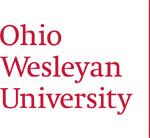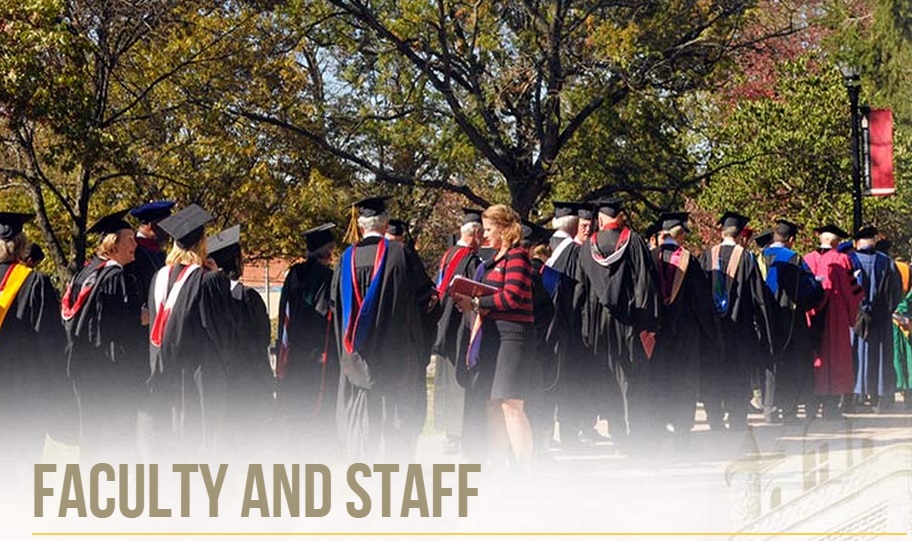
Is it financially sustainable?
That question guided discussion at the Oct. 19 faculty meeting, underlying many of the talking points on the agenda. With enrollment declining, departmental budgets have been cut, book orders for the library reduced, staff laid off, teaching positions remain unfilled, faculty and staff benefits changed and retiree benefits slashed.
President Rock Jones said he and the Board of Trustees discussed, earlier this month, ways to maintain OWU’s liberal arts core in the university’s current economic climate.
“We want to continue the conversation about the importance of our mission as a residential liberal arts institution and to discuss what strategies can help us fulfill that and whether those strategies are sustainable financially, in the 21st Century.”
“We need to be careful,” Jones warned. “If we were to have three or four years of classes that looked like the classes this fall, that would require dramatic action and would threaten our ability to fulfill our mission.”
Provost Charles Stinemetz followed Jones at the podium, and in theme. He told faculty he had been working on a project lately “to estimate the appropriate size of the faculty in relation to student enrollments.”
As hands began to raise, Stinemetz clarified, “The question is, we have a decline in enrollment, how many faculty do we need to serve those students?”
Zach Long, associate professor of English, was the first to speak after this explanation. “Where’d the idea of coming up with an appropriate number of faculty members come from? What was the origin of it?”
Long repeated the question when he wasn’t satisfied with the answers he got from Stinemetz.
Chris Wolverton, chair of the University Governance Committee and a professor of botany-microbiology, tried to help Stinemetz.
“It is the charge of the Governance Committee in the faculty handbook to look at the appropriate size of the faculty,” he said. “This initiative was taken by the Governance Committee.”
Though the investigation is only just beginning, Stinemetz said, “We are far away from having a final model or number. We have had some preliminary discussions with the committees involved, which have brought up some very good points.”
Those committees contributing are the Faculty Personnel Committee (FPC) and the Academic Policy Committee (APC). Suggestions or data generated by these bodies will eventually be reported back to the Governance Committee, Stinemetz said.
After the floor was turned over for committee reports, Wolverton elaborated on what Stinemetz introduced.
“The Governance Committee is tasked with determining the appropriate size of the faculty and administration,” Wolverton said. “So one measure taken was to assemble a working group.”
“That group met and made the recommendation to freeze open faculty positions,” said Wolverton. “That was the outcome. That was what we did.”
When asked by Randolph K. Quaye, associate professor of black world studies, if the hiring freeze is “temporary or permanent,” Wolverton suggested that it remains to be seen.
“One of the variables that has a strong impact is the size of the student body. Now we have several hundred fewer students in our student body.” But, Wolverton suggested, “I would argue that the freezing is going to be temporary.”
Wolverton stressed the importance of cooperation between committee members in making decisions about the number of faculty and administrators OWU can sustain.
“The Governance Committee wants to see a representative of our committee and APC and FPC get as many variables on the table as possible and to see how these variables interact.”
At this point, Wolverton moved to begin an executive session, a period in which all non-voting members of those present, including The Transcript and members of WCSA, had to leave the room. Wolverton said he wanted the closed meeting so faculty would feel comfortable talking about the economic issues facing the university without their views being made public. The vote to close the meeting was not unanimous.
The closed session ended in about 30 minutes.
When N. Kyle Smith, associate professor of psychology and chair of the APC took the podium, to have faculty vote on a new course and other measures, it was discovered not enough faculty were in attendance for a quorum. As a result, faculty could not vote.
Smith announced that at the faculty’s next meeting in November, he would move for a vote to make UC160, an 0.25 unit course, a requirement of all freshmen.
“Overall, UC160 has been shown to increase the retention rate, to make students more aware of possibilities available to them and to make students more engaged with the university,” Smith said.
But many professors did not seem to share this sentiment.
Karen Fryer, professor of geologygeography, said that for high performing freshmen “who hit the ground running, they simply don’t need it.”
Carol Neuman De Vegvar, professor of fine arts, said that “before we even have a discussion about this, we need to be sent information about the class as it already exists. We don’t really have a sense of the shape of it. This needs to be widespread knowledge before we are in a position to talk about this.”
Expanding UC160 to all freshmen would require a considerable expansion of the number of sections offered, which would mean adding to the faculty workload or hiring adjuncts to teach the sections. Given a tightening budget, faculty said they we were concerned about the added cost.
Earlier in the meeting, Jones said a current goal of his administration is to focus renovation efforts on University Hall. But assessments show that the initial estimate of $10 million for the work won’t be enough to foot the bill.
“We need to put everything on the table,” Jones said. “What are the best uses of that building for the future and what is the cost of allowing that building to serve those purposes?”
Jones also announced that longtime supporters of the University, Phillip J. and Nancy Meek, both members of the class of 1959, recently pledged $10 million to added to the $10 million the Meek family has already donated to the University.
